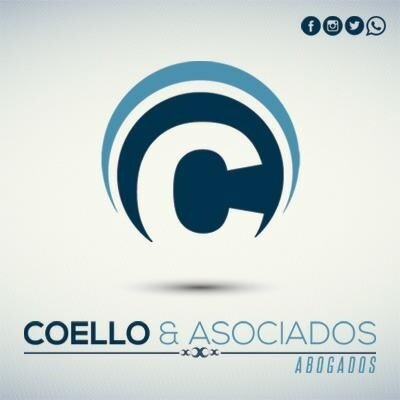Best Debt & Collection Lawyers in Honduras
Share your needs with us, get contacted by law firms.
Free. Takes 2 min.
Or refine your search by selecting a city:
List of the best lawyers in Honduras
About Debt & Collection Law in Honduras
Debt and collection law in Honduras is a critical aspect of the country's legal framework, governing the practices of debt recovery and the protection of consumer rights. With a growing economy and an increase in consumer and commercial credit, understanding the legal procedures surrounding debt collection is essential for both lenders and borrowers. The legal system in Honduras allows for the collection of debts through negotiations, legal proceedings, and, if necessary, public auctions. This framework aims to balance the interests of creditors in recovering debts and protecting debtors from abusive practices.
Why You May Need a Lawyer
There are several situations in which individuals or businesses might require legal assistance related to debt and collection in Honduras. A lawyer can help if you are being contacted by creditors who are threatening legal action, if you face a lawsuit over a debt, or if your wages are being garnished. Businesses may need legal aid to pursue outstanding debts or navigate the complexities of bankruptcy in Honduras. Additionally, if there are disputes regarding the amount owed or the terms of repayment, a legal professional can provide guidance and representation.
Local Laws Overview
The legal framework in Honduras that pertains to debt and collection includes various laws and regulations that govern credit, debt recovery, and consumer protection. The Civil Code outlines general obligations and contracts, while specific legislation, such as the Consumer Protection Law, includes provisions to safeguard consumers from unfair collection practices. The process typically involves the issuance of formal notifications, legal mediation, and, if necessary, judicial proceedings to enforce debt repayment. It is crucial for both creditors and debtors to understand these regulations to ensure compliance and protect their legal rights.
Frequently Asked Questions
What should I do if a collection agency contacts me?
Firstly, confirm the legitimacy of the agency. Request detailed information about the debt and avoid making immediate payments until you verify the debt's validity.
Can a creditor sue me for an unpaid debt?
Yes, creditors have the right to initiate legal proceedings if you fail to meet your debt obligations. It's advisable to seek legal advice if served with a lawsuit.
What are my rights as a debtor in Honduras?
Debtors have the right to receive written notice of debt collection efforts, contest the validity of the debt, and be free from harassment or threatening practices by collectors.
How can I dispute a debt?
To dispute a debt, send a written statement to the creditor or collection agency outlining your reasons and provide any supporting documentation.
What happens if I ignore a debt collection notice?
Ignoring a notice may lead to legal action such as lawsuits, judgments, and potential wage garnishments or property liens.
Can my wages be garnished for unpaid debts?
Yes, under Honduran law, creditors can seek a court order to garnish wages for unpaid debts, subject to certain limits and legal procedures.
How long do creditors have to collect a debt in Honduras?
The statute of limitations on collecting debts varies depending on the type; however, a typical timeframe is three to five years, subject to legal exceptions and renewals.
Is bankruptcy an option for dealing with overwhelming debt?
Bankruptcy is an option that may offer relief from debts but involves legal proceedings, and not all debts can be discharged. Consulting a lawyer is crucial.
Can I settle a debt with my creditor directly?
Yes, many creditors are open to negotiating payment plans or settlements. Ensure that any agreement is documented in writing.
What legal assistance is available for debtors?
Legal aid services are available, and private attorneys specializing in debt and collection can offer advice and representation to protect your rights and interests.
Additional Resources
For further assistance, consider reaching out to the Honduran Bar Association for legal advice, or contact the Directorate for Consumer Protection for consumer-related inquiries. National banks or credit unions also provide financial counseling services to manage debt effectively. Additionally, consulting financial advisors who understand the local market can provide valuable insights into managing and resolving debt issues.
Next Steps
If you need legal assistance in debt and collection, consider scheduling a consultation with a lawyer specializing in this field. Prepare by gathering all relevant documents such as contracts, notices, and correspondence related to the debt. Legal professionals can provide you with the necessary advice, help you understand your rights and options, and represent you in negotiations or court proceedings. Remember, early intervention is key to managing debt-related issues effectively.
Lawzana helps you find the best lawyers and law firms in Honduras through a curated and pre-screened list of qualified legal professionals. Our platform offers rankings and detailed profiles of attorneys and law firms, allowing you to compare based on practice areas, including Debt & Collection, experience, and client feedback.
Each profile includes a description of the firm's areas of practice, client reviews, team members and partners, year of establishment, spoken languages, office locations, contact information, social media presence, and any published articles or resources. Most firms on our platform speak English and are experienced in both local and international legal matters.
Get a quote from top-rated law firms in Honduras — quickly, securely, and without unnecessary hassle.
Disclaimer:
The information provided on this page is for general informational purposes only and does not constitute legal advice. While we strive to ensure the accuracy and relevance of the content, legal information may change over time, and interpretations of the law can vary. You should always consult with a qualified legal professional for advice specific to your situation.
We disclaim all liability for actions taken or not taken based on the content of this page. If you believe any information is incorrect or outdated, please contact us, and we will review and update it where appropriate.
Browse debt & collection law firms by city in Honduras
Refine your search by selecting a city.









